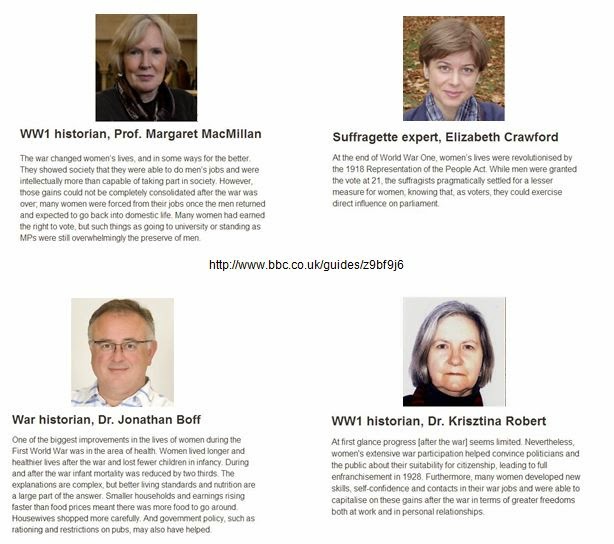Women's reaction to the war.
During World War One ‘more than a million women took the chance to join the workforce’ (BBC, 2014) to fill the gap left by men who went to war. Many people had spent years arguing that women were the weaker sex and this was why they did not have the equality they craved. The onset of war gave a stage for women to dispute this idea as they were 'able to prove their worth both in war and in diplomatic services' (Sarmah, 1997, p.120).
Two days after England declared war on Germany the national union of women's suffrage societies (NUWSS) 'announced it was suspending all political activity until after the war was over' (Cawood, 2013, p.77). On August 7th 1914 the Home Secretary released all suffragettes from prison. The women's social and political union (WSPU) then announced they would be suspending all militant action and also joined the war effort
(Cawood, 2013, p.77).
Women's opportunities in the war.
During the war women proved they were strong and able to withstand the conditions left by the absent men. As well as the men’s work they had taken on, the women still had their own work to do ’12 hour shifts were common – and some women worked 13 days without a break’ (BBC, 2014) there was no work life balance available.
When the troops returned The 1919 Restoration of Pre-War Practices Act was introduced this ‘forced most women to leave their wartime roles as men came home and factories switched to peacetime production’ (BBC, 2014). In 1918, those women who managed to stay in their jobs were still being paid less for doing the same as men (BBC, 2014).
Many women were forced back into their domestic home life, some with the addition of injured male relatives to care for. When considering this I can only imagine the frustration these women must have felt. They had campaigned for so long arguing their worthiness for equality, they then prove this and still it seemingly counted for nothing as they were expected to resume their pre-war positions and ‘found themselves thrown out of work and back into the kitchen almost overnight’ (BBC, 2014).
Expert Opinions.
Here are some expert opinions on the attitude towards women after world war one. These four experts were interviewed as part of the BBC Radio 4's Womens Hour, this particular episode World War One: Changing Women's Lives was aired on Wednesday 5th February 2014. If you would like to watch this episode then you can access it via the QR code or the link below.
The QR code opposite can be scanned with any device that has a QR reader. This will start the BBC programme:
World War One: Changing Women's Lives
http://www.bbc.co.uk/programmes/b03thdbh/qrcode





No comments:
Post a Comment